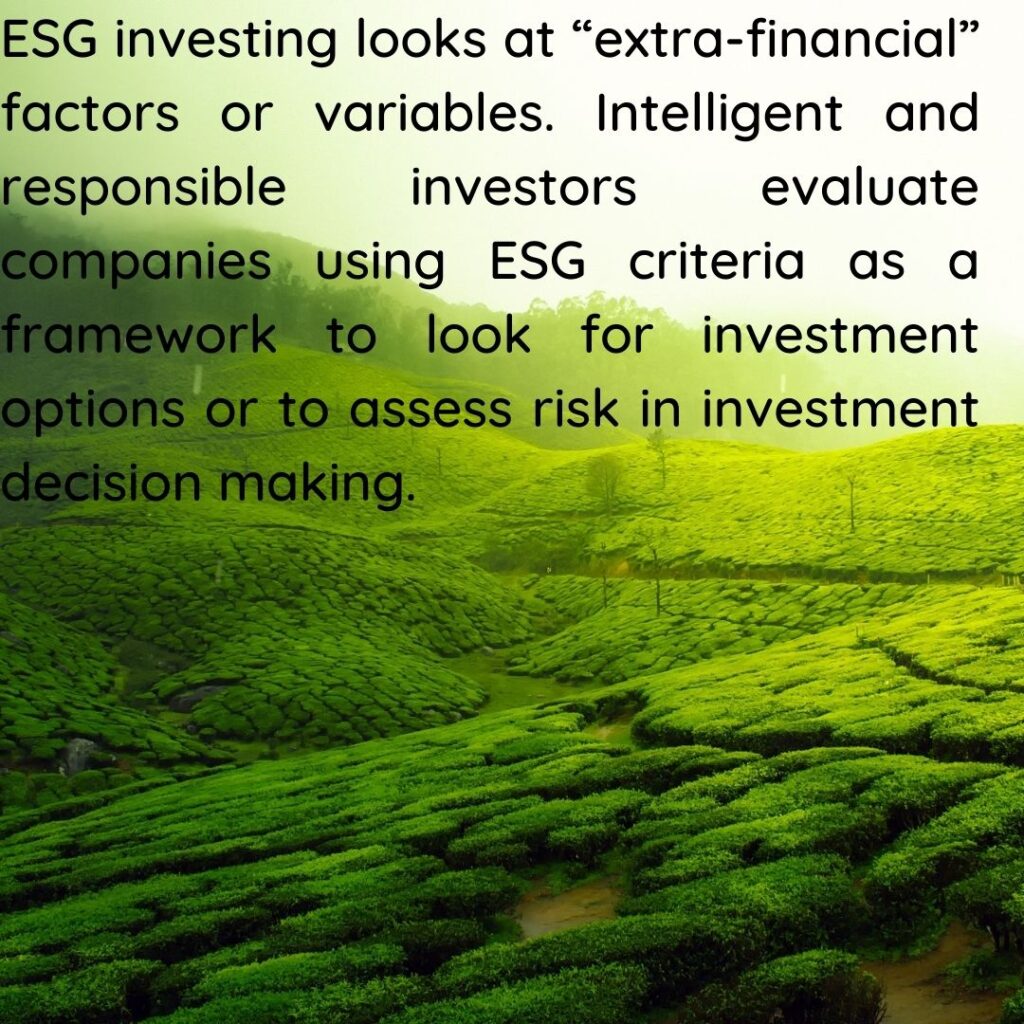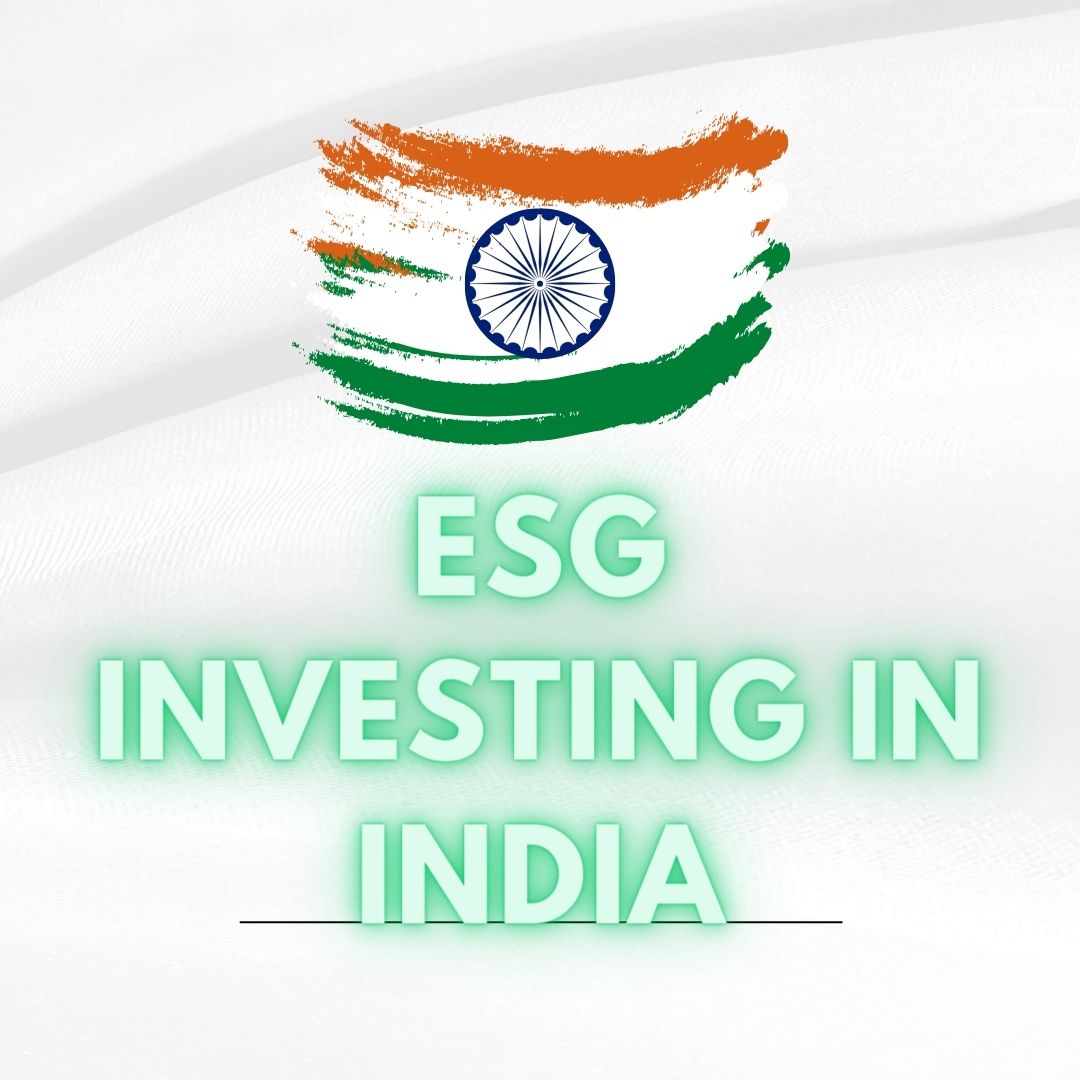ESG Funds : How to Select the Best Fund For Yourself ?
- 17 November 2020 | 1727 Views | By Abhinav Mishra

When it comes to investors and companies/stocks, the primary thing which investors look for is the growth of the company. Now, the way investors look at companies is changing. A growing number of investors want to see their money go toward stocks or funds that are both reflective of their social values and profitable. There are a set of investors who will not invest in the company if there are environmental, social, and governance issues even though the balance sheet of the company looks very attractive.
What does ESG mean?
ESG stands for Environmental, Social, and Governance. Using these three factors, investors evaluate the sustainability and ethical impact of their investment in a company. Investors also use these factors to evaluate the behavior of companies and determine their future financial performance.
Environmental factors – These include the role of a company in climate change through greenhouse emissions. It also checks the waste management strategy and the energy efficiency of the company.
Social factor – looks at how the company treats people. It evaluates the human rights policy of the company, the labor standard followed, workplace health and safety, and any exposure to child labor.
Governance factors – examine how the company is governed. A well-defined corporate governance system can be used to balance interests between stakeholders and can work as a tool to support a company’s long-term strategy. Other governance factors considered are tax strategy, donation and political lobbying, corruption, and bribery.
Why is ESG important?
Modern investors are re-evaluating traditional approaches and look at the impact their investment has on the mother Earth. The United Nations Principles for Responsible Investment (UN-PRI) works to promote the incorporation of environmental, social, and corporate governance factors into investment decision-making. Below are some of the benefits companies have when they consider ESG norms in their business:
More attractive to investors – Many institutional investors are shifting focus to companies having a high ESG score and completely dumping the ones with low ESG scores.
Financial indicators – As per reports, companies with high ESG scores experience a lower cost of capital, have lower market risk, and have less volatile earnings compared to companies with low ESG.
No regulation hindrance – A company’s growth can be impacted if there is a regulation change and the company has to suddenly take big measures to comply with it. With ESG companies, they have already taken care of all regulations, in case of a policy change, they won’t be impacted.
Positive brand value – Brand value is very important for any business. Companies with high ESG score experience better retention rates and more positive brand recognition amongst its customers and staff.
What is an ESG fund?
Given the popularity of ESG in the last 2-3 years, a lot of MF houses are coming up with ESG Funds. ESG funds are portfolio which consists of stocks (or bonds) which adhere to environmental, social, and governance norms. The stocks in ESG funds are the ones that have passed the stringent tests over how sustainable the company is regarding its ESG criteria. An ESG fund will contain only those stocks and bonds which have a high sustainability score. It will exclude companies with, for example, poor records on labor relations, pollution, or management practices.
A mutual fund looks for a good stock of a company that has management quality, potential earnings, cash flows, etc. On the other hand, ESG fund shortlists companies that score high on the environment, social responsibility, and corporate governance. Once companies satisfy those criteria then they look into financial factors.
Read more: What is ESG Investing? Explained in Detail.
How many ESG funds are there?
In India, ESG is still picking up the pace and hence there are only a limited number of ESG funds available. The first ESG fund was launched (it was a rebranding) by SBI named SBI Magnum Equity ESG in 2018. The other ESG funds in India are Quantum India ESG Equity and Axis ESG Equity Fund. The ICICI Prudential has just launched its ESG fund. Kotak Mahindra AMC will be coming up with ESG NFO soon.
These are the only ESG funds in which you invest. In the coming years, ESG investing will become more popular in India given most of the young population are more conscious while making an investment decision.
What are ESG stocks in India?
If you are thinking ESG stocks are some unpopular stocks which you have not heard of, then you are wrong. ESG investing is more about unselecting stocks from the pool of best stocks than selecting them. In general, most of the companies have decent ESG score. IT companies, in general, have a high ESG score. When it comes to banks, they have high Environmental and Social score. Governance is the only factor you need to evaluate.
If you are looking to invest in ESG stocks directly, you can invest in some of the below ESG stocks.
Infosys Ltd, HDFC Bank Ltd, Tata Consultancy Service Ltd, ICICI Bank Ltd, Page Industries, Larsen and Toubro, Asian Paints, Bajaj Finance, Bharti Airtel, Cadila Healthcare, etc.
What cannot come under ESG stocks?
The best example to make you understand, what cannot come in ESG is ITC. ITC is India’s largest cigarette maker. Given cigarettes are not good for the environment (indirectly) and socially not considered good, a lot of investors are staying away from ITC. This is evident from the drop in the holding percentage of foreign institutional investors. From 20% holding of FII in 2017, it is below 15% in 2020.
Sectors and companies that use a lot of water and have no mechanism to re-use it or companies that discharge untreated waste in water, soil, or air cannot be ESG stocks.
What is an ESG score?
ESG score is a parameter to find out whether a company is environmentally and socially sustainable or not. The ESG score can be between 0 and 100. It weighs the performance average on the defining factors- Environment, Society, and Governance.
Is a high ESG score good?
When a company has a high ESG score, it means that the performance of the company has been good and it is taking suitable measures for sustainability on these factors. The low ESG score shows that the company is not taking proper initiatives on these factors. Hence it is bound to undergo losses due to natural accidents, regulatory punishments, or environmental crises.
There are some sectors like chemicals where there will always be an environmental impact. When evaluating companies under such sectors, it is seen what measures the companies are taking to ensure the damage done is least. Such companies can also have a decent ESG score.
What is the difference between ESG and SRI?
You know ESG is an analysis of companies based on Environmental, Social, and Governance parameters. Social Responsible Investing (SRI) is a step ahead. ESG is the analysis while SRI is implementation. It eliminates or selects investment opportunities based on specific ethical guidelines. SRI uses ESG factors to apply positive or negative screens on the investment universe.
If you follow SRI, you will put a portion of your capital in a company that contributes to charitable causes. At the same time, you will avoid investing in funds or stocks that have companies like ITC or companies that are doing environmental damage.










